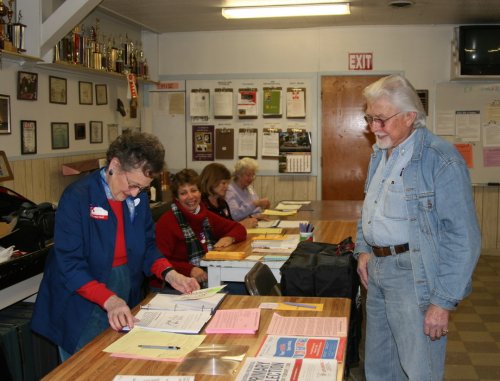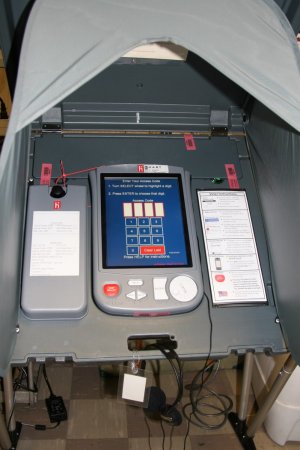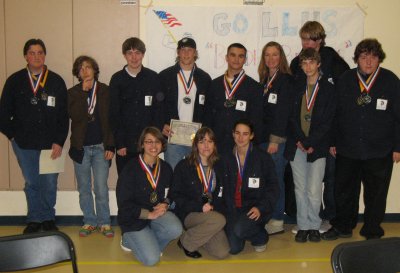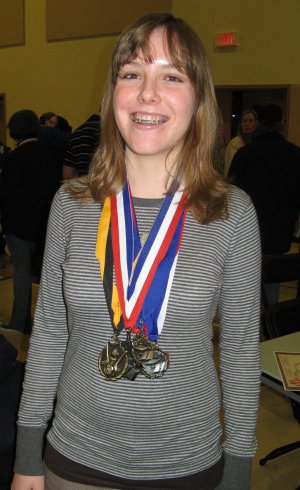- Elizabeth Larson
- Posted On
Berg considers future, looks at run for insurance commissioner
On Friday, former state Sen. Wes Chesbro, who was termed out of the Senate in 2006, announced his plans to run for Berg's First District Assembly seat this year, with her endorsement, as Lake County News has reported.
Berg's term runs out in December.
In a Saturday morning interview with Lake County News, Berg said she's known Chesbro for 30 years and has confidence he'll serve the North Coast well in the Assembly.
“He'll be exemplary,” she said. “He'll hit the ground running.”
Last Tuesday, California voters defeated Proposition 93, which would have given California legislators up to 12 years of time in one or both houses, and extended Berg's years of service.
That would have altered the term limits law, Proposition 140, adopted by the state's voters in 1990, according to the Public Policy Institute of California. Those limits impose a lifetime ban after three two-year terms in the Assembly and two four-year terms in the Senate.
Berg said she was “gravely disappointed” at Proposition 93's defeat, because of its impact on the institution of state government.
With constant turnover of legislators, the only people in Sacramento who have the institutional memory are lobbyists and staff, Berg said.
Since 1990, 21 states have enacted term limits, and six have repealed them, said Berg. Voters, she added, can term out legislators on any election day.
Berg said former state legislator John Vasconcellos, who served in office for 38 years and was termed out in 1996, said it took him a minimum of 10 years to understand the complicated state budget.
“It's all about the budget,” said Berg. “Social policy derives from the budget.”
Berg chairs the Health and Human Services Budget Committee. She said many new legislators with little experience are thrown into the budget mix headlong, with little understanding or experience.
With only six years in the Assembly and eight years in the Senate, Berg said, “You don't even have time to really build relationships, which is what it's all about, too.”
Berg said she doesn't plan to make a run for Sen. Pat Wiggins' Second District Senate seat, which Wiggins will be termed out of in 2014. Berg is now 65, said she would be well into her 70s by that time.
Berg said she isn't ruling anything out. “Right now I'm just going to keep all my options open.”
She does have a goal in mind, she said.
“I've started a committee to run for state insurance commissioner,” said Berg.
Her interest in health care and health insurance drew her to the insurance commissioner post, Berg explained.
She said she feels the health care industry must be regulated, and that health care is a right, not a privilege. “I really care about people being covered.”
Berg said she would run for the insurance commissioner office, currently held by Steve Poizner, in 2010.
Political commentators have pegged Poizner as a possible gubernatorial candidate in 2010. That would open the door for Berg to run for insurance commissioner.
In order to take on the prospect of a statewide race, Berg said she formed the exploratory committee.
For the remainder of her term, however, Berg said she has a lot on her plate in serving the Assembly's First District, which stretches from Del Norte County in the north to Sonoma County in the south, is one of the largest areas of representation in the nation. She called it California's best district.
Some of the issues she plans to work on for the remainder of the year involve health and human services programs, she said, including those dealing with California's aging population – one of her consistent areas of interest.
“My focus is doing the best I can in the time I have left,” Berg said.
E-mail Elizabeth Larson at This email address is being protected from spambots. You need JavaScript enabled to view it..
{mos_sb_discuss:3}

 How to resolve AdBlock issue?
How to resolve AdBlock issue? 









